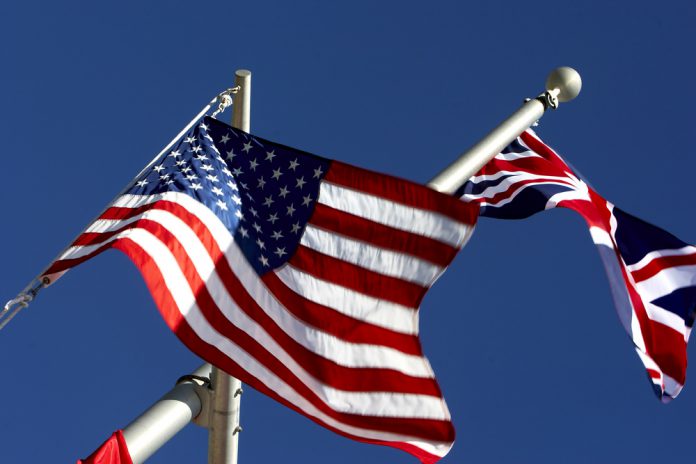Theresa May led international congratulations as she extended her unequivocal support to the President-elect, following one of the most stunning upsets for Washington politics to date.
In a statement, Theresa May said:
“I would like to congratulate Donald Trump on being elected the next president of the United States, following a hard-fought campaign.
“Britain and the United States have an enduring and special relationship based on the values of freedom, democracy and enterprise.
“We are, and will remain, strong and close partners on trade, security and defence.
“I look forward to working with President-elect Donald Trump, building on these ties to ensure the security and prosperity of our nations in the years ahead.”
However, according to BBC correspondents Mr Trump has yet to to reach out the UK Prime Minister.
Special relationship? Trump yet to call PMTM. But has spoken to leaders of Egypt Ireland Mexico Israel Turkey India Japan Australia & SK
— James Landale (@BBCJLandale) November 10, 2016
So, what potentially lies ahead for the so-called ‘Special Relationship’?
Trade
Theresa May will be keen to establish some form of strong trading relationship with the new leader of the free world as the UK continues to attempt to carve out its new world role. Notably this was one of the key issues in which she noted in her congratulations to Mr Trump.
Whilst Barack Obama asserted prior to the EU referendum that should the UK choose to leave, they would find themselves at “the back of the queue”, Donald Trump promoted a much more collaborative message.
In a series of comments made to ITV, Mr Trump stated:
“I would treat everybody fairly but it would not make any difference to me whether they were in the EU or not.
“You would certainly not be at the back of the queue, that I can tell you.”
Mrs May will want to harness this relationship to secure stronger trading relations for an increasingly isolated UK at odds with the European Union and the single market.
Defence
Whilst the UK and US have long been partners in defence policy, it remains to be seen whether the new President will continue this trend given the protectionist and isolationist message that dominated his foreign policy rhetoric.
Back in the summer however, in an interview Mr Trump raised doubts over whether he intended to continue US commitment to the NATO alliance if he were elected.
“We have many NATO members that aren’t paying their bills.”
However, whilst Trump’s initial concern may prove worrisome for the UK and its EU allies, Trump’s debate stance on NATO marked a potentially promising shift towards supporting the endurance of the diplomatic defence alliance.
“I’m all for NATO,” Trump said at the final debate, “but I said they have to focus on terror, also. And they’re going to do that. And that was, believe me, not going to get credit for it, but that was largely because of what I was saying and my criticism of NATO.”
Security
Whilst famously, the Central Intelligence Agency (CIA) is said to have been modeled upon its British intelligence counterpart, doubts persist over whether close Anglo-American security ties will remain.
Conversely, Mr Trump’s consistent praise of Mr Putin suggests that foreign policy under his presidency may in fact be marked by a prioritization and pivot towards Russia and stronger ties with the superpower in terms of both defence and security measures.
Relations between the UK and Russia remain elusive, with the UK being openly cautious over malicious Russian cyber attacking attempts.
Brexit 2.0
Many have already begun to attribute Brexit and the election of political outsider Donald Trump as part of a wider phenomenon of disillusionment with globalism and the political elites.
Indeed, through-out the duration of Mr Trump’s campaign the allusions to Brexit were heavily asserted. Mr Trump famously referred to the November 8th election as “Brexit x10” and former UKIP leader and partial architect of Brexit Nigel Farage was even drafted in to assist the Republican candidate with preparation for the presidential debates.
However, whilst the US and the UK may indeed be facing the same new tide of electoral sentiment and a common history of partnership, it remains to be seen whether a Trump presidency will indeed bind a reinforced UK and US collaboration in leadership.
Mr Trump’s alleged decision to reach out to other world leaders before the UK could be a sign that we may indeed find ourselves ‘at the back of the queue’.

